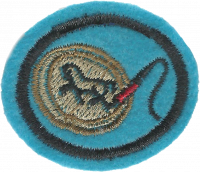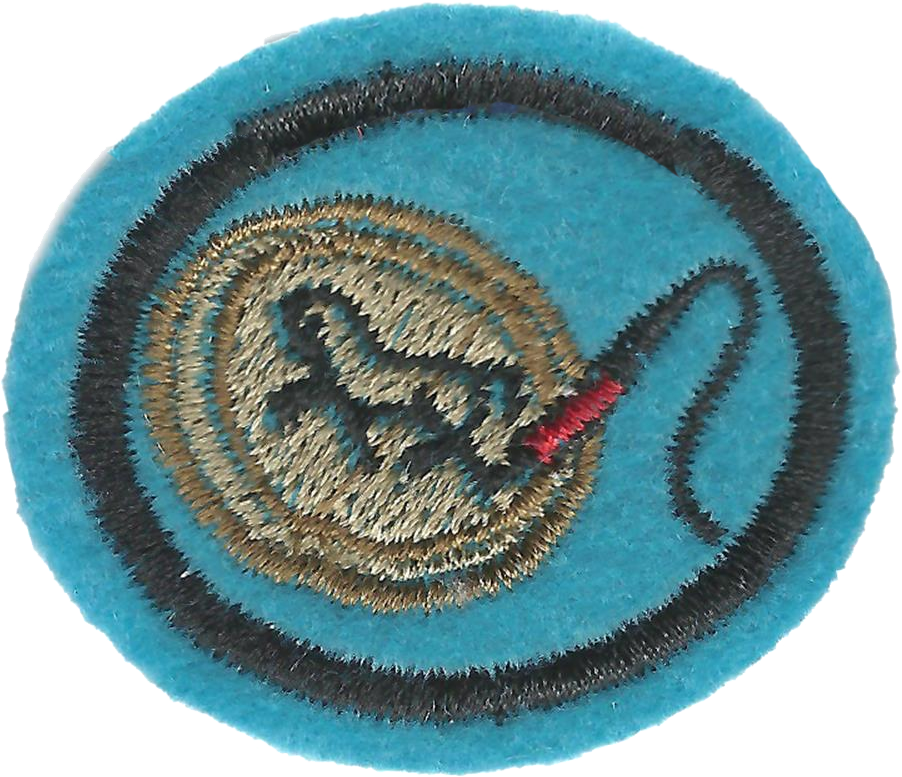AY Honors/Pyrography/Answer Key
1
The art or technique of decorating wood or leather by burning a design on the surface with a heated tool with a metallic point. It is also known as pokerwork or wood burning. The word "pyrography" basically means writing with fire. Many people refer to pyrography as "wood burning", however wood burning is technically done on wood, whereas pyrography can be done on any receptive surface (including wood).
What is the origin of this millennial art? The earliest extant pyrography artifacts are from Peru and Roman Britain and date back well before the First Century AD. These objects were created using fire-heated metal rods, of various thickness and point size, which were applied to the wooden surfaces to produce burned designs.
2
- Wood burning pen
- Carbon paper
- Tape
- Sandpaper
- Pencil and good eraser
- Wood practice board
- Design or artwork to wood burn
3
- Let your wood burning tool heat up.
- Try out each of your bits on a wood practice board.
- Plan your design in pencil on the board if you like.
- Follow along your pencil design using your wood burning tool.
- Remove your pencil lines with a good eraser.
- That’s it! Handwash your wood-burnt objects in between uses and treat with mineral oil for a lasting design and sheen.
4
Although wood is the most popular venue, pyrography is not limited to burning on wood. Leather, paper, gourds, bark, and nuts are among the materials you can transform with pyrography. Each offers its own advantages and challenges. Many woods can be burned, but some are more suited to pyrography than others.
5
The temperature setting that you choose for each stroke is a very important element. Low temperature settings create pale tonal value burns. As you raise the temperatur, your strokes take on a darker tonal value.
Each wood burns at a different rate and you will need to adjust your heat settings to accommodate your specific project. Poplar burns quickly. If you have a setting range of 1 through 10, poplar will show pale values as low as 2 and black toned burns as you near 4. Birch burns from a pale value around a 3 and does not reach the black tones until 7 to 8.
Practice on the material that you will be burning on to make sure you use the appropriate temperature.
6
- Never let a child use a pyrography pen unattended. An adult must always be present to supervise since pyrography pens get hot – VERY HOT. This is not a toy and must be used with caution under adult supervision.
- Be sure to hold the pen by the rubber handle and never touch near the tip of the pen.
- If you are not actively burning with the pen, keep it propped up on the stand provided with the pyrography kit.
- Make sure your pen is turned OFF and unplugged when it is not in use.
- Allow some time for your pen to cool off completely before handling and storing it.
- Do not burn on any woods that are painted, stained, or have been pressure treated as fumes inhaled from these can be harmful to your health.
- Work only in a well-ventilated area to avoid breathing in toxic fumes.
7
If you do not feel comfortable drawing your own picture, you can search on the internet for pictures that you like. You can also look for ideas in coloring books.
7a
7b
7c



